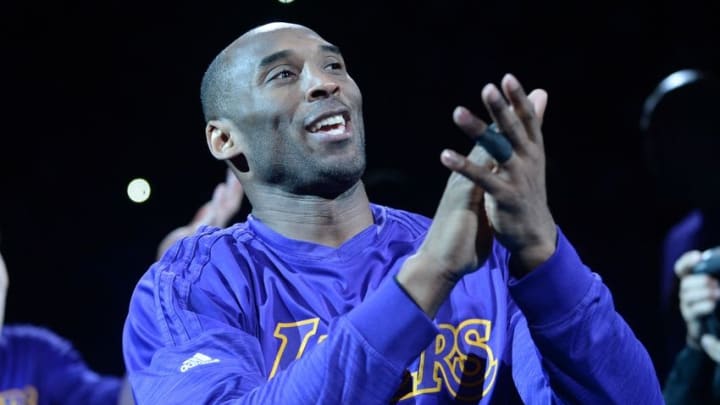Why have we felt the need to turn a lifelong villain, Kobe Bryant, into a hero for his final ride?
In fiction, almost every story is made significantly better when there is a strong villain. Would The Dark Knight have been as good without Heath Ledger’s Joker? No. Could a film like Die Hard still be relevant 30 years later without Hans Gruber? Not a chance. Let’s be honest, even Space Jam being remembered has more to do with the Monstars than it does Michael Jordan’s acting or lack thereof.
As of late, our fascination with the villain has even caused entire stories to focus on them solely as the protagonist without the need for a hero. Don Draper, Walter White, Tony Soprano and Captain Jack Sparrow, to name a few, have shown that the antihero can be just as interesting to watch as any virtuous character.
So why is it in real life, as real as sports can be, we’ve felt the need to turn a lifelong villain, Kobe Bryant, into a hero for his final ride?
Call me bias. Call me a hater — kids still use that phrase, right? Say whatever you want, but the cold hard fact of the matter is that Kobe, on and off the court, has been the ultimate antihero. Opponents hated to play him, many teammates hated to play with him and even his Hall of Fame coach Phil Jackson once said “I won’t coach this team next year if [Bryant] is still here. He won’t listen to anyone. I’ve had it with this kid.” Oh, and that’s before you even get into his off-court life.
Yet, in his final season, Kobe’s undergone more of a makeover than when Good Morning Miss Bliss went from Indiana to California and became Saved By The Bell. It’s like the league, many media members and fans collectively gained selective amnesia and decided to forget anything he’d done that didn’t include a basketball. He’s been honored on every stop of the journey in ways usually reserved for dignitaries with behind the scenes gifts — per Kobe’s request — opposing crowds, even the most hostile, cheering him and videos honoring him featuring his highlights against the very team he was facing. The guard from Lower Merion High School ate it all up — being gracious when in the past he would have been surly, and smiling when previously he may have scowled.
My question, why?
Throughout his career, Kobe has reveled in being disliked. He’s enjoyed being the harbinger of pain for his opponents and their fans. He’s fed on boos the way Superman’s cells gain their strength from soaking in the sun’s radiation. He used his own legal issues as an opportunity throw a teammate he’d struggled to get along with under the bus. Oh, and as an 18-year-old, before ever setting foot on an NBA court, he forced his way to the Lakers.
More hoops habit: Kobe Bryant's 50 Greatest Moments
For some reason, the league’s greatest villain had a drastic change of heart. He wanted the hero’s farewell. And that’s a shame. Our great game deserves a great villain. Kobe’s final season should have been an acknowledgment of his superior skillset and the fact that he’s the greatest antihero to ever lace up Nikes. Because, just like in Hollywood, the heroes just wouldn’t have been as interesting without their counterparts like Kobe Bryant.
